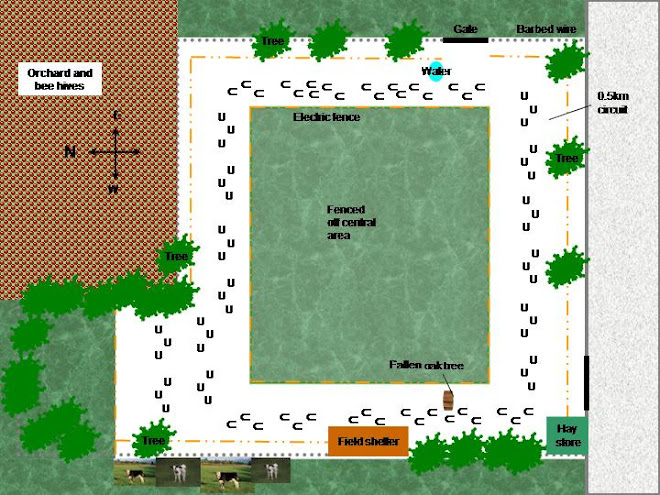THERE IS NO SUCH THING AS A BAREFOOT HORSE DIET
There are diets which are suitable for horses in general and horse's with specific metabolic issues.
So why are DIET and BAREFOOT so strongly linked?
Because a barefoot horse tends to expose any mismanagement of diet which a shoe might otherwise conceal.
There is much discussion on various forums regarding the health benefits or otherwise of shoes. For now let's put that to one side.
What is hard to dispute is that shoes cover up or mask problems such as:
- stretched white lines
- thrush
- thin soles
- underslung heels
- contraction
- navicular
- crumbling walls
- 'ravel'
Many of these problems have some form of metabolic/dietary component. So when the shoes come off it is hard to ignore the issue. So the wise barefooter will address it, often with a change in diet.
Hence some folk making the leap to barefoot horses needing a special diet. Actually the diet is pretty much appopriate for the general horse population, but barefooters are generally more aware of the need - because shoes are no longer masking the symptoms of a poor diet and/or compromised metabolism.
General principles of a healthy diet for horses - whether barefoot or not
- Keep sugars and readily digestible starches to a minimum (be aware that many grasses and hays in the UK can be more than 25%). I always aim for 10% or less and avoid Rye grass like the plague (very high in sugar/starch)
- Feed forage, forage, forage. The bacteria in the caceum are very capable of turning this into energy the horse can use
- Check for mineral balance - it does vary by area and getting it wrong can be the difference between ok health and outstanding performance
- Learn how to feed the horse's gut rather than your emotional need (horses don't need 'meals' - we just like to give them)
- Avoid packaged/processed feeds, especially senior mixes and anything with molasses added. Even supposedly 'hoof friendly' products can be very unhelpful when feeding a metabolically challenged horse
- Memorise the key facts about grass and sugar from http://www.safergrass.org/
- Stop being sentimental about the traditional UK vision of a horse on a lush field. Unless you really don't like horses that is. Horses are not designed to live on lush grass any more than the average human can survive on a diet of 100% donuts.








No comments:
Post a Comment